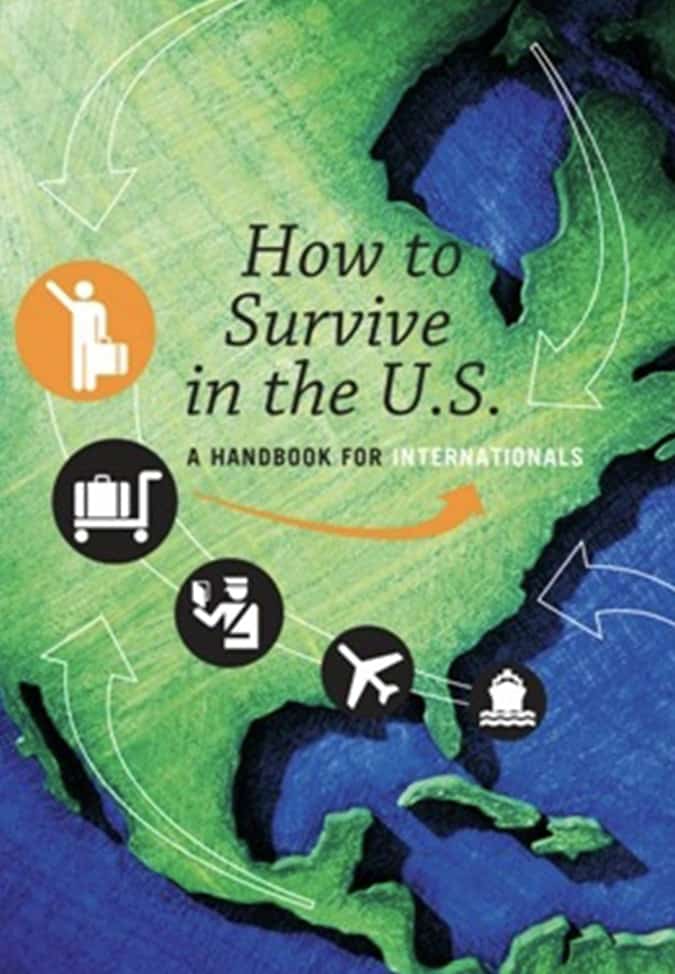Launching 1: Eight Ways to Start a Ministry

All times of the academic school year are not equal for planting ministries. The beginning of the semesters, particularly the fall, is the most conducive to starting ministries. This means you really need to be doing groundwork in August and early January to get the most mileage out of the first 6 weeks of the semester. To begin ground work September 1st would be to potentially miss out on planting a couple of ministries. Groundwork will include: contacting administration, finding out about existing groups, getting information on Activity Fairs and semester start dates, learning the procedures to become a recognized student group, getting permission for survey/information tables and permission for a meeting room.
[1] SURVEY OR INFORMATION TABLESWhile it is profitable to shop around for churches to partner with and key volunteers or donors, the best place to start is the campus. The expertise we provide is starting ministries. It is always easier to partner with a church or find a key volunteer once a ministry has been started and the easiest way to do that is the survey/ information table.
Explain to the administration you would like an information table to determine student interest for a potential ministry on campus, and that you also need a room to hold an organizational meeting. Permission for a table and a room can usually be procured through one of two separate avenues: Through Student Organizations (usually found in the Student Center) or though the Chaplain (usually in the Campus Ministries Department).
Usually you’ll want to go through Student Organizations. The reason is most any group can become a club (even Satanists) through Student Organizations if there is student interest. The chaplain must give support, which is rare, for your ministry to get sponsorship through Campus Ministries.
Make the table look attractive (brochures, FSK’s, Inter-Acta studies etc.), and if you can have a display made that looks professional you should. Set up the table for two days, if you can, to get folks with odd and even day schedules. In taking the survey, design some good filter questions, make sure there is a place for an e-mail address and make sure you initiate with people. There are lots of interested folks who will be intimidated to come over to the table. Also make special note of any folks who seem to have leadership skills who stop by the table. Pull them aside and share with them the vision of what you’re doing and ask if they would like to help give leadership.
The following week you’ll want to have your first meeting. E-mail all interested people. If you have time put up flyers on campus (free pizza if possible) and call a few of the key folks you met at the table. Hold your first meeting. Make sure to get everyone’s name, number and e-mail.
After the meeting pull aside any students who seem to be leadership material, and talk to them about giving leadership to the group. Ask if you can meet in one of their rooms or go back the next day and try to reserve a room for upcoming meetings. Lead the group the next few weeks but look to turn it over to the emerging student leaders.
There are lots of nuances but this is the basic idea. Tim Holcomb, Catalytic Director in Eastern PA, was able to start ministries on 7 campuses in the first 6 weeks of the Fall semester because he took the Spring and August to set up these tables. As was mentioned, once the group is started, you can tie in a key volunteer or tie it to a good church for greater effectiveness.
[2] AFFILIATINGBesides the survey table, affiliating can be the quickest way to get on campus. There are probably over 1,000 independent ministries on campuses all over the country. These groups will probably never reach the campus with the gospel, or send a full time laborer into the harvest if they do not connect with us. They are a tremendous untapped resource.
First, it’s important to say that there is always a need for alignment with an independent ministry. People have been skeptical of existing, independent, ministries because they are not evangelistic enough, have certain doctrinal distortions, or might not be following our distinctives.
It’s important to see a parallel between a committed freshman Christian College student and an independent campus ministry. Both have great potential, both have to be aligned, both don’t already embrace our distinctives (we build those in over time) and both can and will be influenced doctrinally. It’s critical to look at the heart of the group and not ask the question “Are they aligned?” but rather “Are they alignable?” Most groups, like most committed freshman, are alignable with a little time, instruction, relationship building and coaching.
There are two ways to affiliate; formally and informally. Sometimes a group is mature, aligned with our mission, vision and values, is familiar with Cru, and would like to affiliate with us. I look to formalize the relationship with such a group: “up-front” and in writing. This makes them feel like they are officially Cru. It also gives me a unique platform to state my expectations: like their attendance at retreats or a Summer Project. This agreement becomes a great tool for alignment.
The second type of affiliation is informal. Some groups are not excited by the idea of being taken over. The situation is similar to a Christian that needs discipleship but is suspicious about committing to a discipleship relationship. The solution is the same. Over time you build a relationship, trust and reliance. I informally stop by every month, “hang out,” and bring some materials or resources. Over time they begin to appreciate me as an encouragement and a resource. They also come to see that I’m not going to seize control of their group. By the second year, my relationship with the group is as if a formal partnership had occurred, and at any point in year two I can choose to put it in writing.
Charlie Klepadlo went to Washington College in Maryland. It has a student population of 2,000. As he walked across the campus he saw posters for a meeting of Christian students. Upon further investigation it was the only Christian group on campus and was run by a faculty member with 30 students attending weekly. Charlie got the name of the faculty member and met with him the following week. He knew of Cru and felt it would be very helpful to work together to reach Washington College. In one week Charlie is one campus closer to his scope.
[3] FINDING A LOCAL CHURCH WITH STUDENTSAnother quick way to locate the critical mass you need to begin a ministry on campus is to find a church with a significant student population. Such information isn’t hard to find. Just find one evangelical church in that college town and call them and ask, “What evangelical church has the most college students attending?” That should lead you to your church.
Next, meet with the College/Youth Pastor or Youth Group leader and share the vision of what you’re doing. The vision to share is stewardship. God has entrusted them, as a church, with these college students. If they invest them back on campus, as a student group that meets on campus, that investment could double or triple (six students meeting on campus could become a group of 18). That growth will only benefit the church.
There are lots of logistical ways to follow through with this arrangement. The easiest is to ask to meet with the college students after church, treat them to lunch, and share this vision of meeting on campus and becoming a recognized group. Then get a room on campus, publicize the meeting, lead the first few yourself and place a few students in charge. Last, determine how the Pastor or Youth Group leader can best coach the effort (i.e. lead the group periodically, disciple the leadership students), and what your coaching role will be (i.e. visit once a month, talk on phone etc.).
[4] FINDING A CHRISTIAN CONTACTTo get a ministry started on a campus you just need one Christian. They don’t even have to be the most dynamic Christian. Through them you can begin a group and later find a quality student or volunteer to lead the group.
There are a variety of ways to find Christian contacts. You can go to a local Staffed Campus weekly meeting and hand out LINC cards. You can pass out LINC cards at the Christmas Conference and ask for references. You can call a few local churches in that particular college town and ask if they can help locate a couple of Christian College students. You can also put up LINC posters (with the tear off phone numbers), targeted at Christian parents and students, at a church near the college or even on the campus.
Meet with the student and present the vision of starting a ministry. Ask if you can use their room or if they can ask for a room on campus (show them where to ask and go with them). If you can get a room you can publicize all over campus for a first meeting. Lead the first group and see who comes. Often there are a couple of sharp students with sincere hearts who attend. Ask them to stay afterward and present to them the opportunity of helping to the lead the group. Lead the next few groups, still looking for more potential leadership students to gather. By the fourth week you should have gathered a few students you can entrust with the leadership of the group.
Last semester I received a contact from a person at the Christmas Conference. All I had was a name and e-mail address of a student at Lebanon Valley College. I e-mailed her the vision of what I wanted to see God do on her campus. She was positive but wasn’t sure how much she could be involved. We met, she was willing to get a room, I ran the meeting, found a few leaders and now there’s a small ministry that exists on the campus. Your contacts don’t have to be leaders just a vehicle to start a ministry and find leaders.
[5] FINDING A NICHEOn some campuses, sometimes the biggest obstacle to planting a ministry can be that there are a number of national ministries (I.V. Navigators etc.) already on the campus. We recognize that God may not need us on any given campus. I think, however, it’s advisable to try some different doors before drawing that conclusion.
First, it’s important to inform the other groups that you are considering starting Crusade on campus. Often that will be met with different reactions. I’ve found it best to be encouraging and to express that I’m open to God not wanting me there, but that I’m walking by faith and trying to discern His direction. While wanting to be encouraging; it’s important to remember that you are informing the other groups of your intentions, not asking permission.
On such campuses it’s important to be thoughtful about finding a niche in the campus community that other ministries are not reaching. That niche could be ethnic, international, Greek or athletic students. Due to a large InterVarsity ministry, getting Cru established at the University of Maryland Baltimore County (UMBC) met with a great deal of frustration. Later that same year, through an Impact contact and a church partnership, an African American ministry was planted on the campus that drew 100+ students out weekly.
At UMBC it became apparent that there were portions of the student population that were not being reached through the existing ministry and that there was a niche for Cru on campus. Surveys with an athletic team or Fraternities and Sororities can produce new ministry inroads and niche ministries on a campus that seemed at first glance “reached” by other ministries.
[6] USING AN EVENTSometimes permission for survey tables and rooms are not granted. In some cases it is possible to rent a room on campus (usually through Conference Services). Many schools will rent out space or a room to local venders or out-side groups that are willing to pay for the space. Sometimes you can rent a room in the Student Center and put on an event that can gather critical mass. It could be a concert, an evangelistic talk or a party.
After 6 months of trying to get a ministry started at Kutztown University the administration refused to do anything to help us except rent us a room in the Student Center. It was right before Easter so we publicized for a talk on “Evidence for the Resurrection.” Over 40 students came out and provided the 12 students we needed to become a recognized group and finally get a room on campus.
[7] UTILIZING PUBLICITYPublicity, ideally, is not a stand-alone strategy for getting a ministry going. However, due to certain restrictions it might be the main way you get a ministry going or might be the only way. In all cases, it’s important for you to be aware of what publicity avenues are open to you.
On some campuses you might be able to get a room for an organizational meeting but have no other way to get contacts. You can put up flyers all over campus for the meeting. Posters are downloadable right on campus off of the “Godsquad.” Also, most people don’t think to use campus mail, but if you go to the campus post office with flyers they will often let you put them in the student mailboxes.
You might make use of a student newspaper to run an ad on campus. On some campuses if you can’t get a room, one way to get a contact would be to run an ad in the campus newspaper targeted at interested Christian students with your phone number to call if they would like to help start a ministry.
Some schools have televisions in every lounge on campus and there is usually one cable station, like in a hotel, that announces student activities. Always ask what it takes to get access to using that station for publicity. Sometimes the school will tell you that you must be a registered group to use the station sometimes you just have to ask or pay.
Whether, campus newspapers, campus cable television, flyers, mailboxes, or even local radio it’s important to be thoughtful of what campus media is available and how you can use it to help gather the critical mass to start a ministry.
[8] CHURCH PARTNERSHIPSWe have already discussed finding an evangelical church with a large student population. This, however, is not the only possibility for a church partnership. There might be great churches to partner with who currently are not attracting students. As you visit a campus you might find a solid evangelical church near campus. Call the church and ask what are the major evangelical churches in town. You are looking to get a few churches worth calling and talking about the idea of partnering to reach the campus.
Your initial conversation can be vague and visionary. What you would like to do is set up an appointment to meet with the Pastor to discuss working together to reach the campus. Make no commitments up front and even let them know you might be meeting with several churches.
Think of these appointments as dates. You are trying to find someone to marry. The criteria for finding a mate is to discern who, if any, have the best resources to begin a campus ministry (students, a volunteer or Pastor, and money). Other criteria are proximity to campus, passion for reaching the campus, relevancy of the church and its worship, and alignment to our mission, vision and values.
If you find a good match then you will schedule subsequent a meeting to work out details of the partnership. The key things to spell out in the partnership agreement is the vision, exactly what steps will be followed to start the ministry, what the church will provide in resources and coaching and what Crusade will provide in resources and coaching. You might get some input on your first partnership agreement from someone with more experience.
Some years ago I was driving to York Pennsylvania. There are 4 schools in York. Two of the schools, York Tech and Bradley Art Academy, were actually on the property of a local church. The church didn’t have any students but it’s location and heart to reach the schools made a partnership prudent. I simply stopped by the church without an appointment, introduced myself to the Pastor and presented the vision.
We prayed about and met again to discuss and hammer out some details. Because the church was small the agreement was pretty simple. I found the Christian student contact and started the small group that met at the church and turned the leadership over to the Pastor. Typically about 10 students came out. The Pastor and the students alternated leading the group. I met with the pastor once a month to coach him, twice a semester I visited the group and met with the student leaders. A volunteer from the church was responsible to take them to conferences. Last year 3 people came to Christ through the group and were baptized in the church.
SOME PITFALLS TO AVOIDPOSSIBILITY PARALYSISOne of the greatest obstacles, and opportunities in planting a new ministry are the multiplicity of options. There are multiple options in starting a ministry, multiple ways to configure the leadership of the group and multiple ways to work out partnership agreements. The amount of options, combined with a fear of making the wrong choice, can cause a sort of paralysis. It becomes less painful just to let the contacts sit then work through some of the complexity.
A couple things can be helpful. Rather than sweeping thing under the rug, bring in another catalytic staff or Director to help you problem solve. Also putting things down on paper so you can see your choices clearly is helpful. Last, make prioritized lists that tell you what has to get done, in what order and on what days you are going to do them: A very streamlined strategic plan. When the options are overwhelming you need a road map. Take the time to draw one up, with another Catalytic staff if needed. A typical road map for me might look like:
Monday: Get permission for room, call key students to meet with the pastor and myself.
Tuesday Morning: Write up partnership agreement.
Tuesday Afternoon: Meet with students and pastor. Key questions to get settled are; who will lead group, how often should I stop by, e-mail addresses, what should group be called.
INABILITY TO CONVERTOne of the greatest obstacles to planting ministries is when the process is allowed to drag out too long: When the birthing period of a ministry becomes 4 months instead of 4 weeks. Weeks can be lost trying to get back in touch with people; momentum wanes, and volunteers loose their motivation.
Ministries are best started with intense, concentrated effort. Momentum is lost when the pace of time is working against you and not for you. There are some things, within your control, that can keep momentum working for you. You have to make up our mind not to lose at phone tag. You must make the most of trips and set up as many appointments as possible. You need to make the most out of e-mail to cut down the “turn around” time on communication. You might have to travel to the same campus several times in the same week to get everything accomplished. Be intentional about cutting down the time to launch a ministry.
I’m sure in the next few years God will give us many new tactics in opening up ministries and I’m sure we will become aware of many more pitfalls but for now these are some helpful things to try and some harmful things to avoid.
















